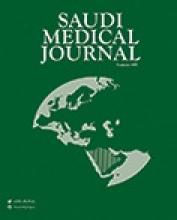MAY 6, 2020 - Undergraduate arts and music departments may represent untapped resources for building up the workforce needed to care for older adults, according to a study published in the Journal of the American Geriatrics Society.
In the study, an undergraduate course curriculum brought 52 students to meet with people living with dementia, build personalized music playlists, co-produce short films about living dementia, and write reflective essays.
Music helped undergraduate students connect with people with dementia in meaningful ways, filmmaking offered students the opportunity to share stories about dementia and music, and reflective writing enabled students to process their experiences. More than half of the students continued engaging with the participants who were living with dementia in their careers, families, and communities after the course was completed.
The findings reveal that arts and music courses can affect students’ perceptions about dementia and create new educational opportunities about this condition.
“By teaching students to view aging through creative, intercultural and interdisciplinary frames, we have the opportunity to shape a new generation of health care professionals, artists, and community members who will be motivated to collaboratively work towards addressing the needs of our rapidly aging populations,” said lead author Jennie Gubner, PhD, ethnomusicologist at the University of Arizona and Atlantic Fellow at the Global Brain Health Institute. “Whether studying classical guitar, nursing, anthropology, public health, or business and marketing, everyone has something to offer to conversations about brain health and aging.”
Full citation: “Transforming Undergradute Studnet Perception of Dementia through Music ang filmmaking.” Jennie Gubner, Alexander K. Smith, Theresa A. Allison. Journal of the American Geriatric Society; Published Online: May 06, 2020 (DOI: 10.1111/jgs.16418). URL Upon Publication: http://doi.wiley.com/10.1111/jgs.16418
Copyright © 2020 The Cochrane Collaboration. Published by John Wiley & Sons, Ltd., reproduced with permission
- Copyright: © Saudi Medical Journal
This is an open-access article distributed under the terms of the Creative Commons Attribution-Noncommercial-Share Alike 3.0 Unported, which permits unrestricted use, distribution, and reproduction in any medium, provided the original work is properly cited.






